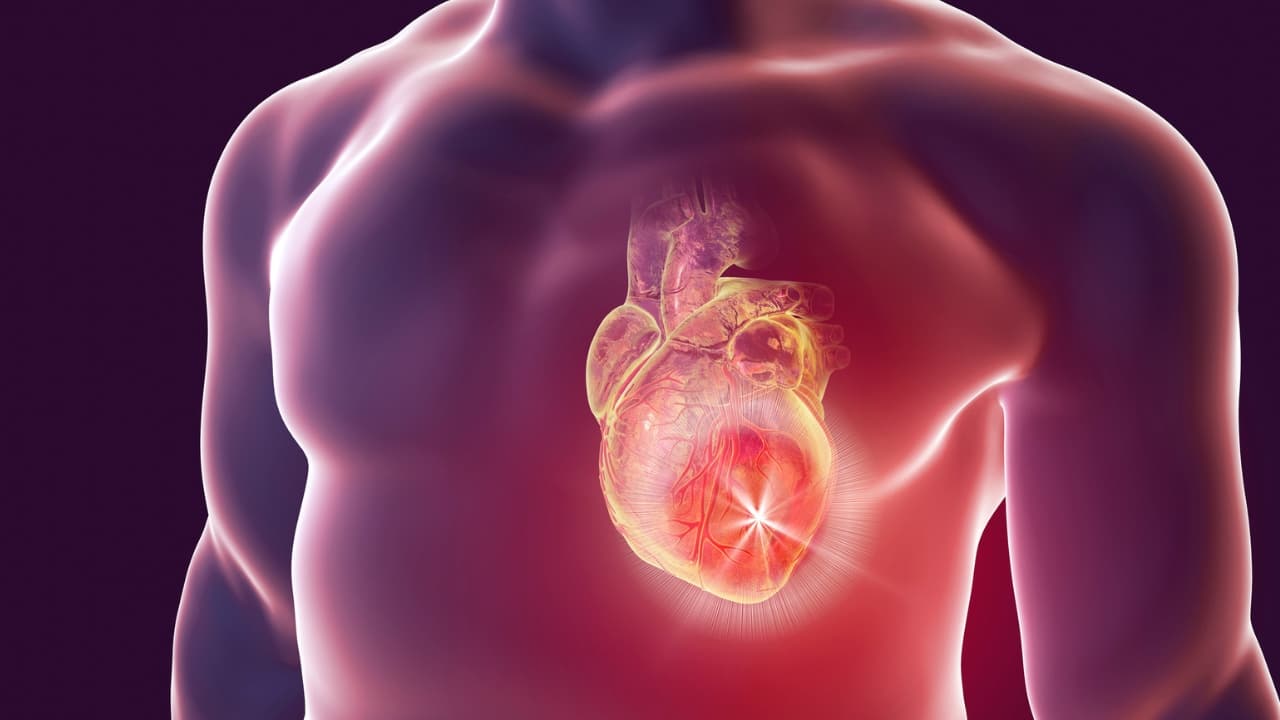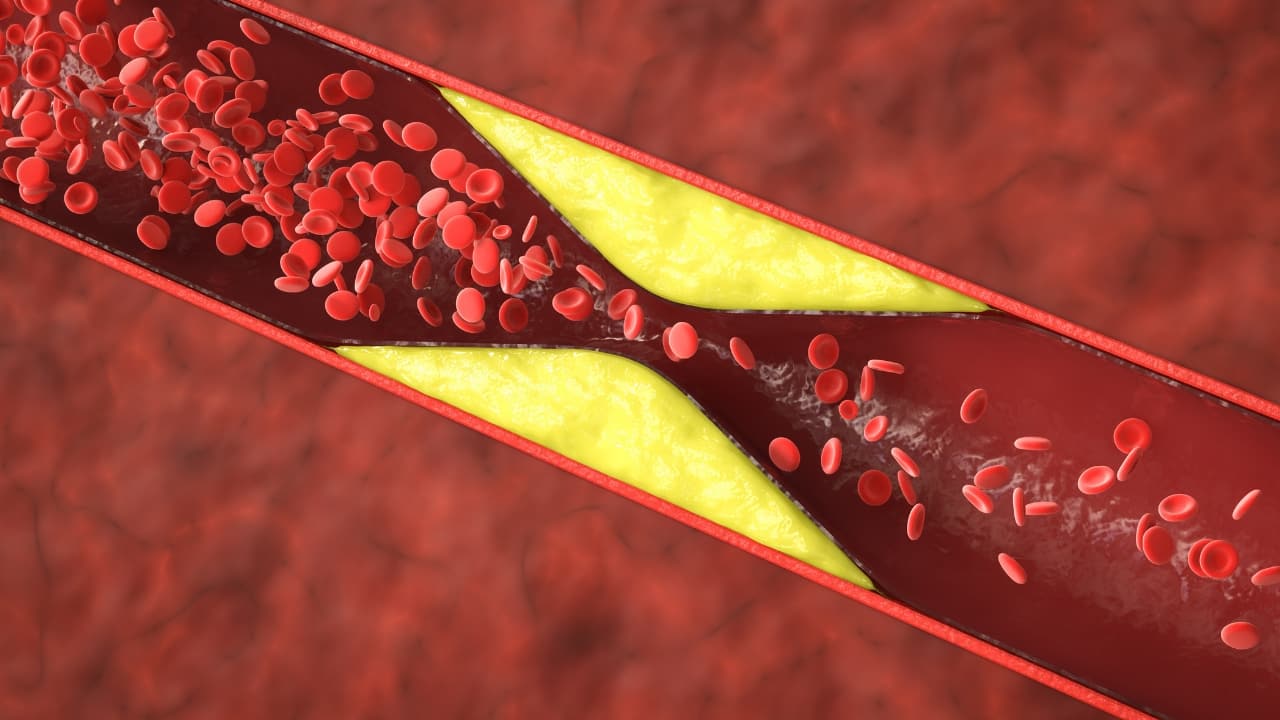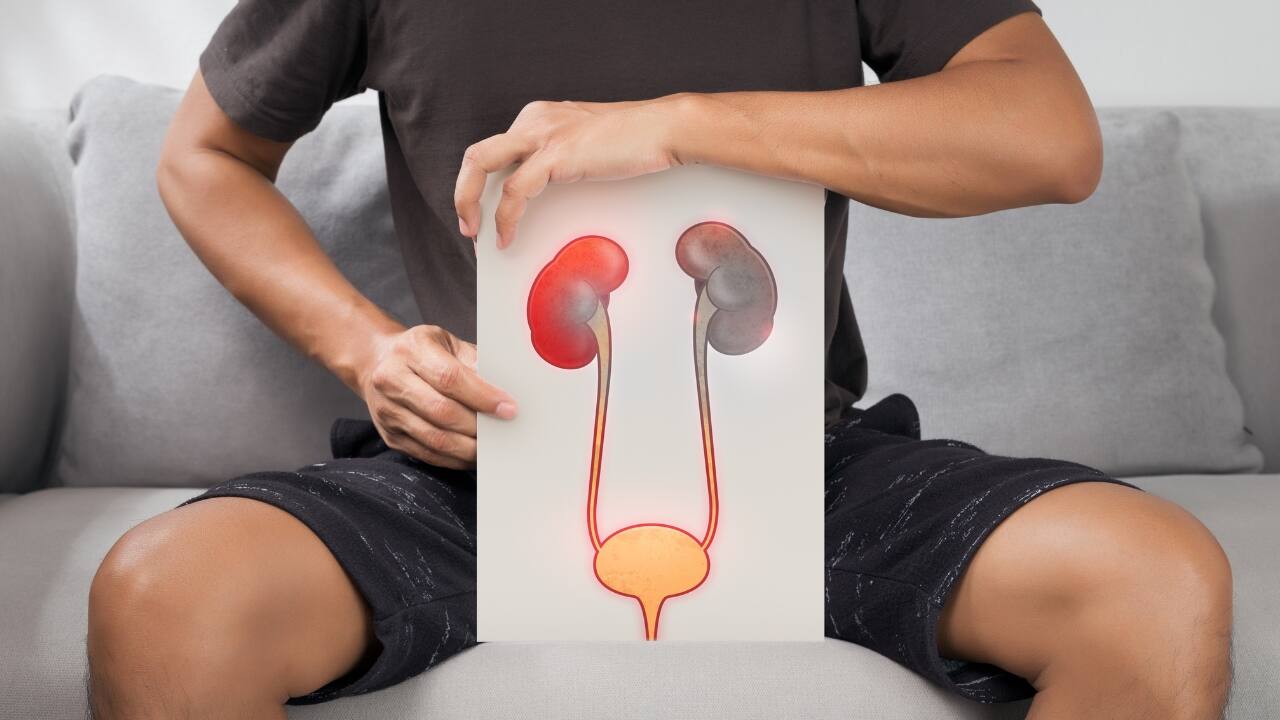Heart Failure: What it means and why it matters
Heart failure occurs when the heart cannot pump enough blood to meet the body’s needs. It results from structural or functional issues and is a common cause of hospitalisation in older adults
1/10

When the heart gives up
Heart failure or cardiac failure is the process in which the heart is not able to meet the demands for oxygen and substrates of the body in its work as a pump. It may be a result of structural or functional cardiac problems. It is an end stage for various forms of long-term heart disease. Heart failure is one of the most common reasons for hospitalisation in adults who are above 65 years of age
Heart failure or cardiac failure is the process in which the heart is not able to meet the demands for oxygen and substrates of the body in its work as a pump. It may be a result of structural or functional cardiac problems. It is an end stage for various forms of long-term heart disease. Heart failure is one of the most common reasons for hospitalisation in adults who are above 65 years of age
2/10

Left, right or both sides
The heart has four chambers, including two atria and two ventricles. Heart failure may be left-sided, right-sided or biventricular involving the left and right ventricle. In left-sided cardiac failure, there is a reduction in the amount of blood that comes out of the left ventricle, and similarly in right-sided heart failure. In the biventricular type, both ventricles become unable to pump blood out
The heart has four chambers, including two atria and two ventricles. Heart failure may be left-sided, right-sided or biventricular involving the left and right ventricle. In left-sided cardiac failure, there is a reduction in the amount of blood that comes out of the left ventricle, and similarly in right-sided heart failure. In the biventricular type, both ventricles become unable to pump blood out
3/10

What pushes the heart down
Diseases that affect the blood supply of the heart like myocardial infarction, or those that cause long-term pressure overload on the heart like raised blood pressure, mitral or tricuspid stenosis, can lead to heart failure. Toxins, drugs, ageing, chronic anaemia, increased levels of thyroid hormones and vitamin B deficiency like beriberi are also etiological factors for cardiac failure
Diseases that affect the blood supply of the heart like myocardial infarction, or those that cause long-term pressure overload on the heart like raised blood pressure, mitral or tricuspid stenosis, can lead to heart failure. Toxins, drugs, ageing, chronic anaemia, increased levels of thyroid hormones and vitamin B deficiency like beriberi are also etiological factors for cardiac failure
4/10

Risk factors you ignore
Risk of heart failure may be increased by comorbidities like diabetes mellitus, increased cholesterol, and use of substances that are known to cause injury to the heart like alcohol, tobacco and cocaine. Poor compliance with therapy, overload of intravenous fluids, excessive salt intake, and physical and emotional stress can also elevate the risk
Risk of heart failure may be increased by comorbidities like diabetes mellitus, increased cholesterol, and use of substances that are known to cause injury to the heart like alcohol, tobacco and cocaine. Poor compliance with therapy, overload of intravenous fluids, excessive salt intake, and physical and emotional stress can also elevate the risk
5/10

Out of breath too soon
Breathlessness on exertion is one of the most common symptoms of heart failure. This breathlessness may increase on lying down (orthopnea). A sudden feeling of shortness of breath may be experienced while sleeping that wakes one up. This is known as paroxysmal nocturnal dyspnea and is an important feature of cardiac failure
Breathlessness on exertion is one of the most common symptoms of heart failure. This breathlessness may increase on lying down (orthopnea). A sudden feeling of shortness of breath may be experienced while sleeping that wakes one up. This is known as paroxysmal nocturnal dyspnea and is an important feature of cardiac failure
6/10

Breathing patterns gone wrong
The pattern of breathing can also change in this condition. The person may have an alternating pattern of short, rapid breathing followed by apnea, often observed while the person sleeps. In some cases, positive airway pressure may be needed to deal with this. This type of breathing is called Cheyne-Stokes respiration
The pattern of breathing can also change in this condition. The person may have an alternating pattern of short, rapid breathing followed by apnea, often observed while the person sleeps. In some cases, positive airway pressure may be needed to deal with this. This type of breathing is called Cheyne-Stokes respiration
7/10

Swelling, tiredness and pressure
Other symptoms and signs include fatigue, reduced urine output, limitation of activities, ankle swelling or swelling over the lower limbs (oedema). In people who are not bed-ridden, symmetrical oedema is seen in both lower limbs. In advanced cases, fluid may accumulate in the face and upper limbs also. Reduced blood pressure is a common feature
Other symptoms and signs include fatigue, reduced urine output, limitation of activities, ankle swelling or swelling over the lower limbs (oedema). In people who are not bed-ridden, symmetrical oedema is seen in both lower limbs. In advanced cases, fluid may accumulate in the face and upper limbs also. Reduced blood pressure is a common feature
8/10

What the tests reveal
A number of investigations may be needed to diagnose heart failure. A chest X-ray can reveal an enlarged heart, electrocardiography can show the etiology like myocardial infarction, arrhythmias or active ischemia. An echocardiography, nuclear cardiology, cardiac MRI, cardiac biopsy, and complete blood count, liver function test along with serum urea can aid in diagnos
A number of investigations may be needed to diagnose heart failure. A chest X-ray can reveal an enlarged heart, electrocardiography can show the etiology like myocardial infarction, arrhythmias or active ischemia. An echocardiography, nuclear cardiology, cardiac MRI, cardiac biopsy, and complete blood count, liver function test along with serum urea can aid in diagnos
9/10

Danger signs to watch for
If not treated timely, it can lead to renal failure (cardiorenal syndrome) which can be worsened by certain medications like diuretics. Reduced levels of potassium and sodium are poor prognostic signs. Deep vein thrombosis, atrial and ventricular arrhythmias are common along with hepatic dysfunction
If not treated timely, it can lead to renal failure (cardiorenal syndrome) which can be worsened by certain medications like diuretics. Reduced levels of potassium and sodium are poor prognostic signs. Deep vein thrombosis, atrial and ventricular arrhythmias are common along with hepatic dysfunction
10/10

Live better with awareness
Relief of symptoms is important, and educating the patient and their relatives is crucial, like explaining the course of the disease, the causes and the treatment. Patients must stop smoking, control hypertension and diabetes or any other factor that leads to heart failure. The diet may be rich in fruits and vegetables and must contain enough fibres. Appropriate drugs prescribed by the cardiologist must be taken timely.
Disclaimer: This article, including health and fitness advice, only provides generic information. Don’t treat it as a substitute for qualified medical opinion. Always consult a specialist for specific health diagnosis
Relief of symptoms is important, and educating the patient and their relatives is crucial, like explaining the course of the disease, the causes and the treatment. Patients must stop smoking, control hypertension and diabetes or any other factor that leads to heart failure. The diet may be rich in fruits and vegetables and must contain enough fibres. Appropriate drugs prescribed by the cardiologist must be taken timely.
Disclaimer: This article, including health and fitness advice, only provides generic information. Don’t treat it as a substitute for qualified medical opinion. Always consult a specialist for specific health diagnosis
Discover the latest Business News, Budget 2025 News, Sensex, and Nifty updates. Obtain Personal Finance insights, tax queries, and expert opinions on Moneycontrol or download the Moneycontrol App to stay updated!






